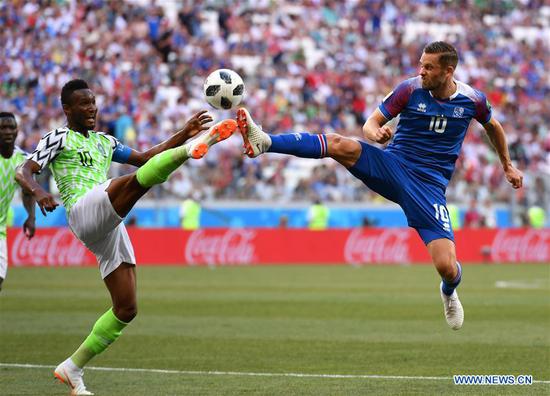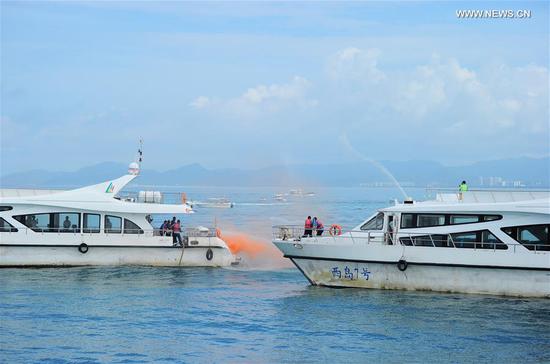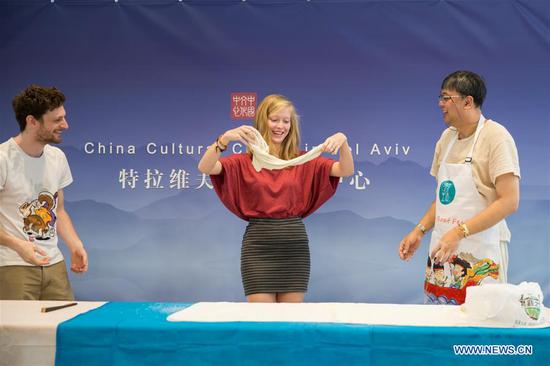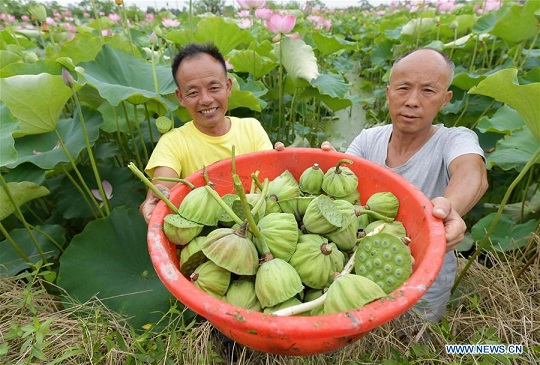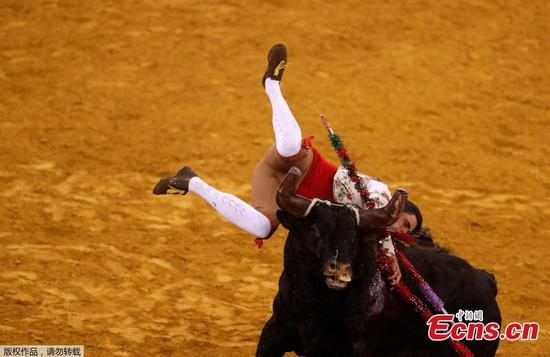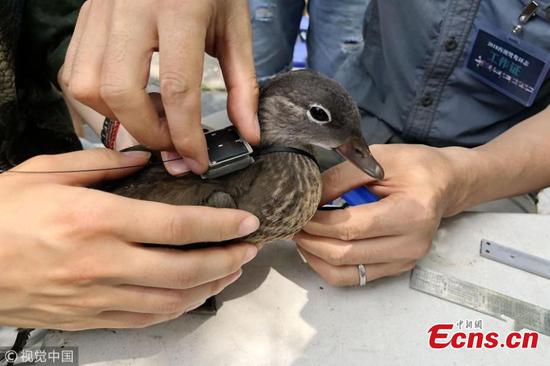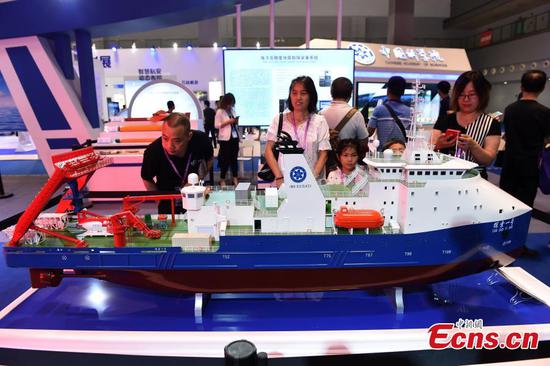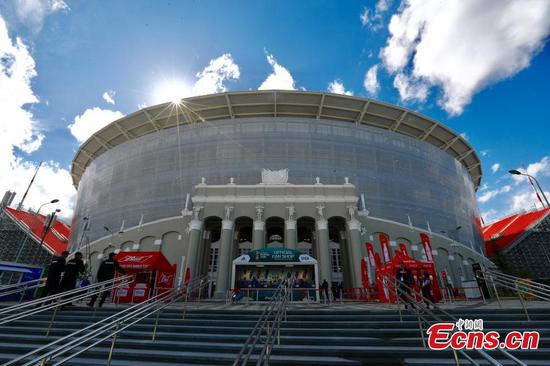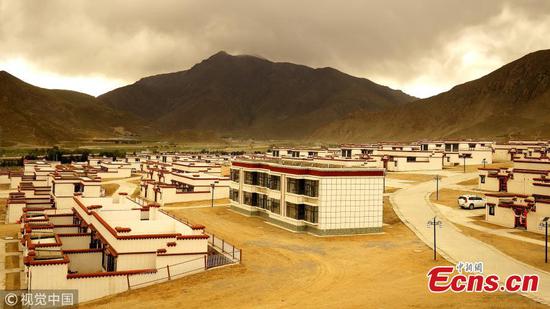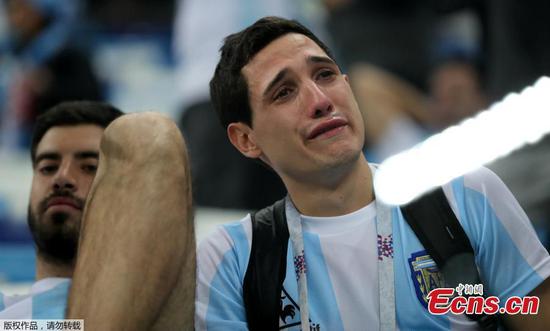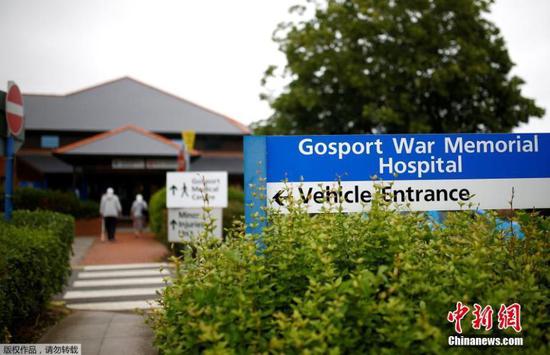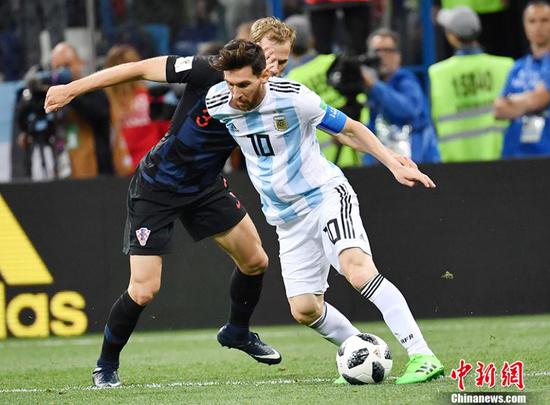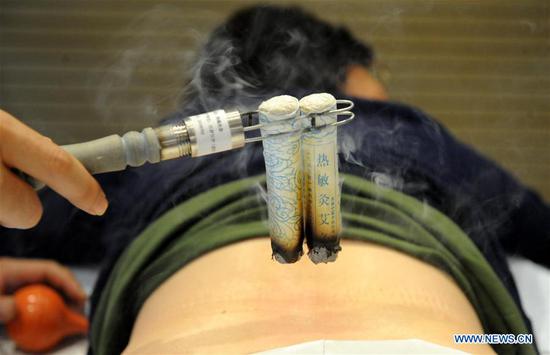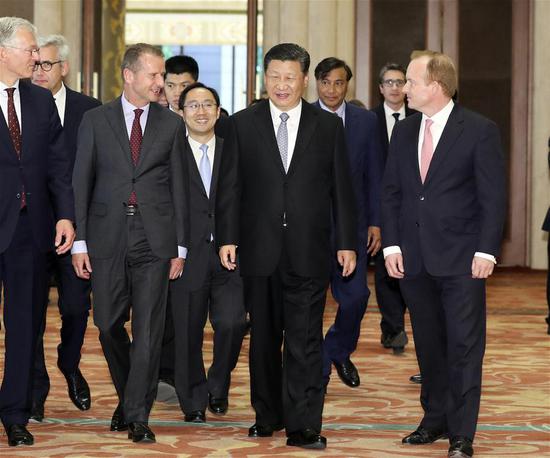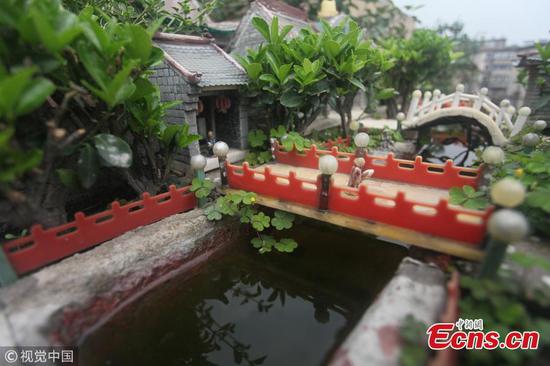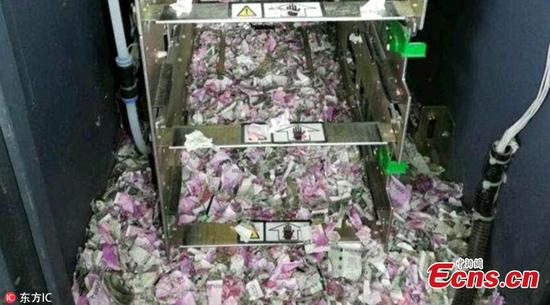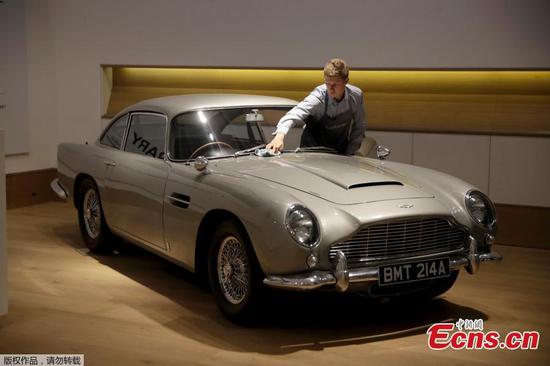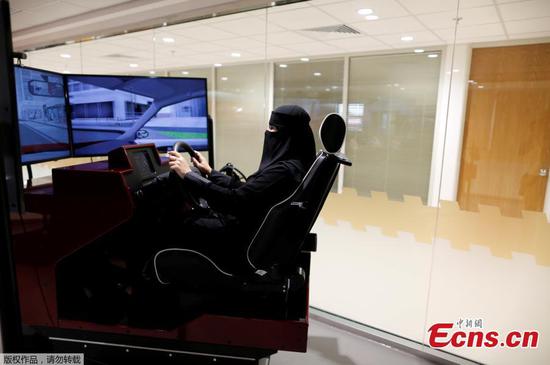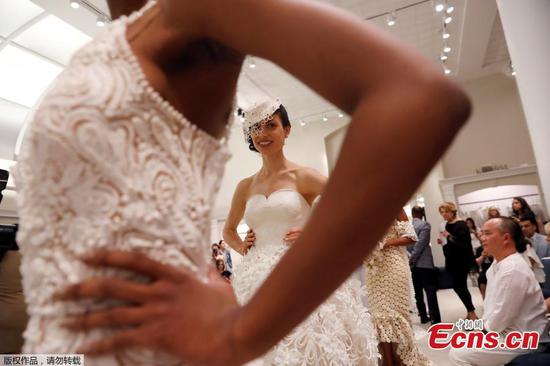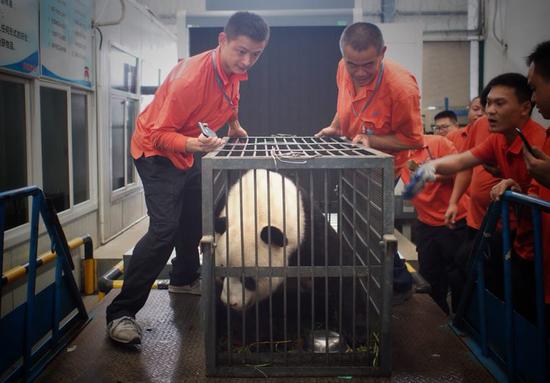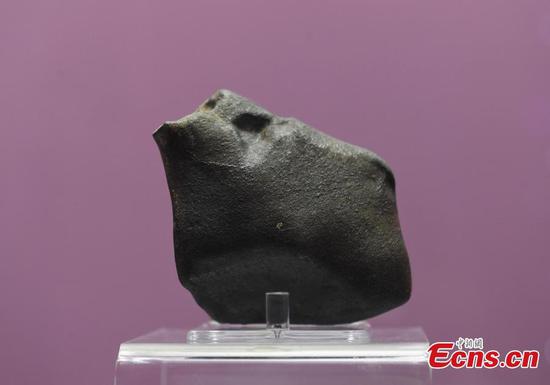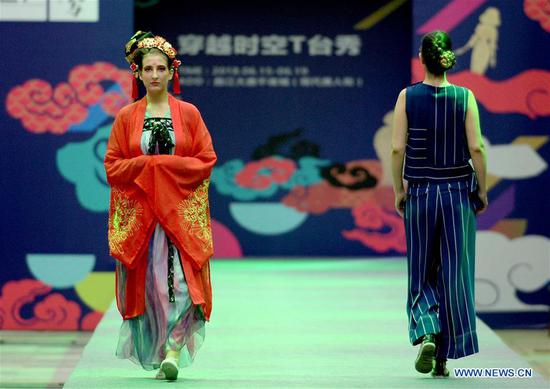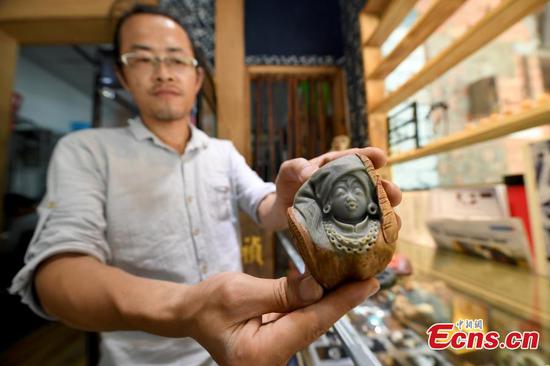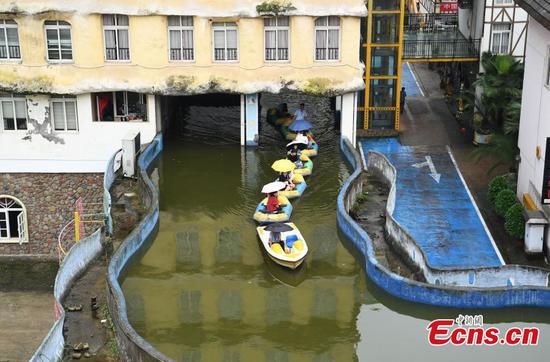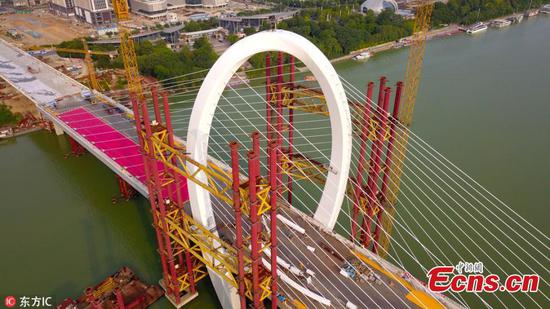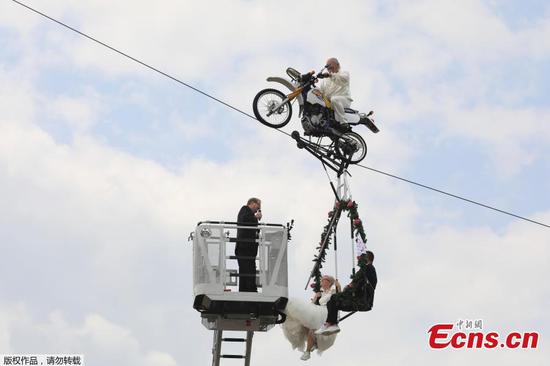French Prime Minister Edouard Philippe flew to China on Friday for a four-day visit during which he aims to build on foundations laid during President Emmanuel Macron's trip to Xi'an and Beijing in January.
The four-day visit is a rare official overseas trip for Philippe, the head of government, who has been focused on pushing through domestic reforms since his appointment in May 2017.
"I think it's a good sign that the first new international travel for the prime minister is to China," Denis Depoux, China CEO of global consultancy Roland Berger, told CGTN Digital. "It comes not so long after the visit of President Macron, so it means France is intensifying a bit the pace of its relationship with China, which from a business perspective is a very good sign."
Philippe, who is traveling with a ministerial and business delegation – including the head of diplomacy Jean-Yves Le Drian and about 50 business leaders – in tow, tweeted before his departure that he aimed "to realize the commitments @EmmanuelMacron during his visit in January and develop new partnerships in innovation and the environment."
The prime minister's office said on Thursday that he will look to cement bilateral ties and promote business agreements in promising sectors, while continuing dialogue on economic, political and international aspects of the partnership.
"The previous visit by President Macron was very successful and also accelerated some opportunities, both with Airbus and also Orano, the nuclear fuel cycle company," Depoux said.
Philippe, a regular visitor to China before his elevation to the Matignon, is expected to target progress on a major aviation contract, with Bloomberg reporting that he hopes to push forward an 18 billion US dollar deal for more than 180 Airbus jets.
A memorandum of understanding was also signed in January, during Macron's visit, by French energy firm Orano (then known as Areva) and China National Nuclear Corp for the construction of a nuclear fuel treatment-recycling plant.
"I would expect that with the prime minister coming now at least some of this could make further progress," Depoux added. "Whether it's signed or not, I'm not sure, because those two are very big contracts with high complexity on the aircraft side and extremely high complexity on the nuclear side."
Philippe is scheduled to visit a DS7 assembly line at a facility of French carmaker PSA, one of around 2,000 French companies operating in China, and meet tech firms in Shenzhen before traveling to Shanghai to brief Chinese investors on recent domestic reforms.
He is also expected to visit China's first automated metro line, operated by the joint venture formed by Shanghai Shentong Metro Group and the French company Keolis, and Yangshan Port, which has received investment from France's largest container shipping group CMA CGM.
Depoux, who believes recent tax, labor and state-owned industry reforms have made France an increasingly appealing opportunity for Chinese investors, said there are several areas ripe for cooperation between the countries.
"Energy is one, environment is another one, new technology is another one. France has become a very strong innovator, in that respect it matches China though not necessarily in the same fields, so I think it make a lot of sense to join forces."
Trade tensions
Philippe arrives in China as retaliatory EU tariffs on 2.4 billon US dollars' worth of US products come into force, and after a week in which the Trump administration ratcheted up trade tensions with Beijing.
"Europe and China are on the same page, a bit puzzled by the Trump administration and the trade war," Depoux told CGTN Digital. "This whole trade war is detrimental to business, and it's detrimental to European business as well."
"There's nothing to win for European business because it's overall bad for business – the only thing that will happen is that if China cannot use American components in its supply chain it will turn to other countries. Possibly Europe may benefit from this in the short run, but it's going to be mostly Korea, Japan, other economies."
Depoux added that Europe and China have a responsibility to maintain the multilateral framework, for example by continuing to take trade disputes to the World Trade Organization, and said it's important that communications between the sides is reinforced.
"If we lose this (a multilateral framework), then it's chaos," he warned.









